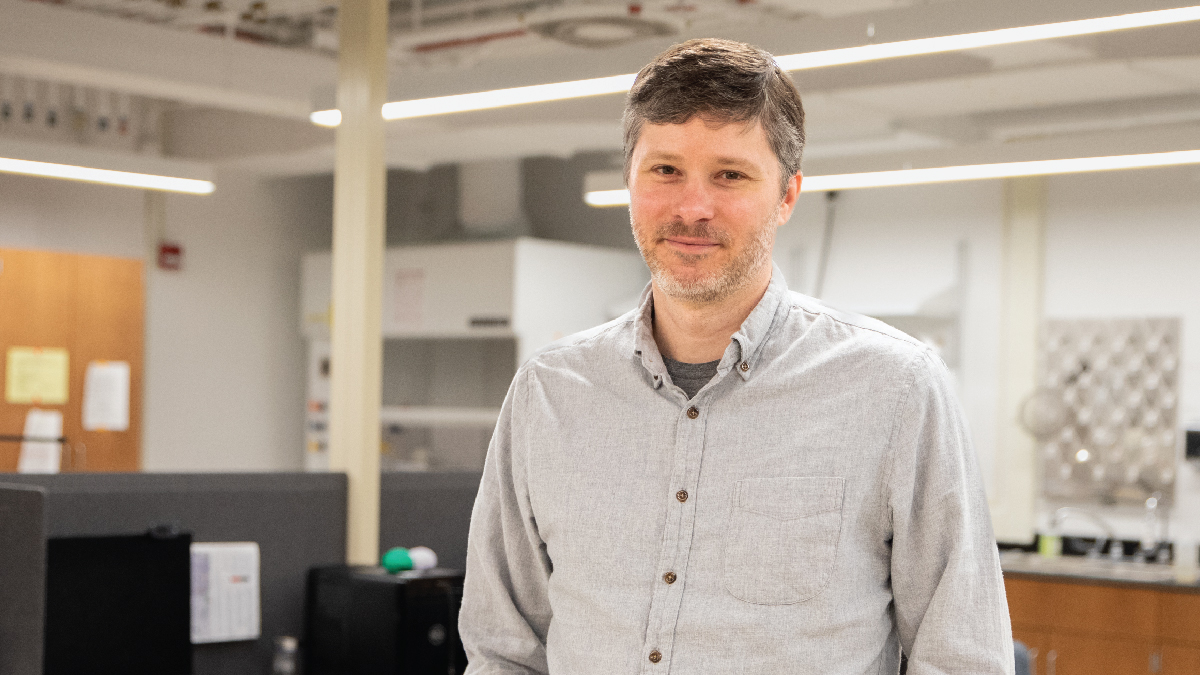Deciphering Neural Integration: An Exploration of Bilateral Perception
03-21-2024

Scott Pluta, Assistant Professor of Biological Sciences at Purdue University, immerses himself in the complexities of neural integration. His research delves into the intricate interplay between the brain's hemispheres during bimanual tasks, challenging conventional assumptions and offering fresh insights into the dynamic nature of neural connectivity and function. By monitoring real-time brain activity, Pluta studies the mechanisms governing sensory integration and coordination, paving the way for advances in cognitive neuroscience.
“What are the fundamental principles of neural computation, how to circuits give rise to sensory information? These are the fundamental questions we are asking.” Pluta continues, “Because that’s ultimately what the brain’s job is, to extract information from the world and use that information to make a decision that fits our goals.”
Pluta's most recent research, conducted in collaboration with graduate students Hayagreev Keri and Hyein Park, delves deep into the intricate interplay between the brain's hemispheres during bimanual tasks. This work diverges from past studies, yielding novel insights into the dynamic nature of neural connectivity and function.
Utilizing neural recordings across both cerebral hemispheres, Pluta monitors the real-time brain activity during negotiate obstacle navigation. His findings challenge conventional assumptions, revealing a nuanced composition of neural signals—an interplay of cooperation and inhibition between the cerebral hemispheres.
At the core of Pluta's investigation lies the corpus callosum, a neural bridge facilitating communication between the brain's hemispheres. Contrary to previous notions of uniform suppression or lateralization, his research indicates a dynamic process of bilateral facilitation and inhibition, modulated by the specific demands of the task.
Two revelations emerge from of Pluta's research. Firstly, he uncovers a surprising bilateral facilitation during bimanual tasks, contrary to the prevailing notion of suppression. Secondly, the timing of neuronal spikes and local field potentials becomes highly synchronized across hemispheres during task-oriented behavior, a phenomenon previously unseen in somatosensory cortex.
The essence of Pluta's findings lies in the concept of "bilateral integration"—a phenomenon wherein sensory information from both sides of the body converges and is processed by the brain. His research unveils the intricate mechanisms governing this process, shedding light on how the brain seamlessly integrates disparate sensory inputs to facilitate coordinated action.
“These discoveries indicated what we call a top-down gate.” Pluta explains. “The simplest thing that can dynamically regulate the flow of information has to be a cognitive process that’s coming down to our sensory cortex. We seem to be able to decide how wide we want to open that gate in an effort to meet behavioral demands.”
In practical terms, Pluta's research holds profound implications for understanding cognitive function and neurological disorders. By clarifying the mechanisms of bimanual integration, his work offers insights into therapeutic interventions and rehabilitation strategies.
Pluta's findings suggest that the brain possesses a remarkable capacity for adaptability and plasticity—a capacity that can be harnessed to enhance cognitive performance and mitigate the effects of neurological impairment. From a clinical standpoint, this research offers hope for individuals grappling with conditions such as stroke, traumatic brain injury, and developmental or neurodegenerative diseases.
As the scientific community grapples with the complexities of neural function, Pluta's work serves as a testament to the power of inquiry and discovery in unraveling the mysteries of the human brain. In a world marked by uncertainty, his research offers a glimpse into the boundless potential of scientific exploration to transform lives and shape our understanding of the mind.
About the Department of Biological Sciences at Purdue University
Purdue Biological Sciences is the largest department in the Life Sciences at Purdue University. We are dedicated to pioneering scientific discoveries and transformative education at the cutting edge of innovation. From molecules to cells, from tissues to organisms, from populations to ecosystems - we bring together multiple perspectives, integrating across biological scales to advance our understanding of life and tackle the world’s most pressing challenges. Learn more at bio.purdue.edu/.
Source: Scott Pluta, Assistant Professor in the Department of Biological Sciences at Purdue University
Writer: Alisha Referda, Communications Specialist